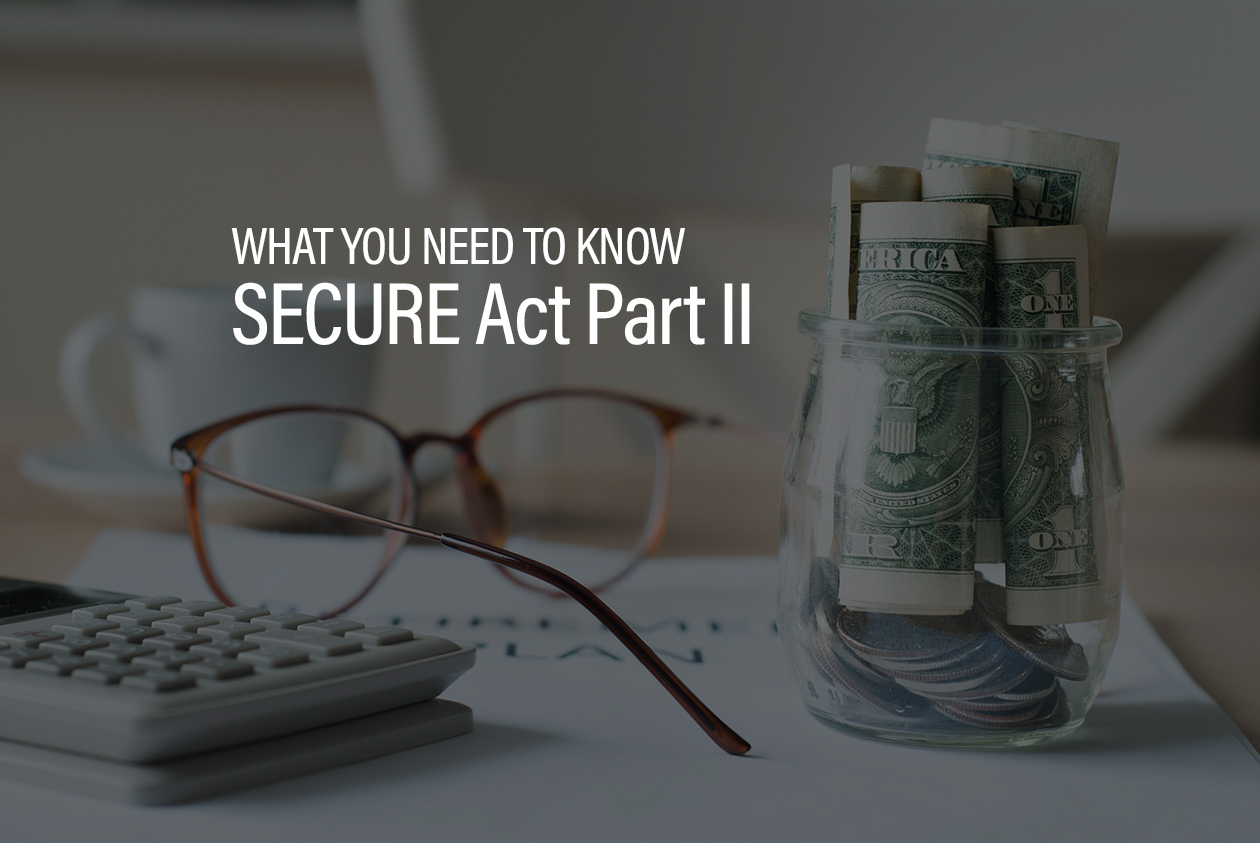Is Your Retirement Really SECURE? Part II
Written by Conrad Slate
Do you know about the new SECURE Act? It’s the one passed by Congress in December that lets you postpone your required distributions (RMDs) from starting at age 70 ½ to age 72. So far so good, right? Well, there are so many implications to the SECURE Act that most of us are still figuring it out. Does postponing your distributions really make sense? Maybe not. If you have a significant 401k/IRA/403b balance, it may not be wise. As with many things, it depends.
Do you have assets in a revocable trust (living trust as it is often called)? Are your retirement accounts passed through that trust to your heirs? It is time you reevaluate that to see if that still makes sense. It may not. The new law only gives most beneficiaries, other than your surviving spouse, ten years to withdraw the account value. If it is in a trust then there could be complications if the new law’s changes aren’t considered. A different kind of trust may be wise.
With only ten years rather than 25-35 years to withdraw, the SECURE Act compresses a lifetime of taxes into just ten years. If your heirs are in peak working years, that additional tax can take a big chunk of what you a have accumulated.
For many, it may not be a big issue, but for a number of you, planning for the differences may mean that taking some steps now is wise.
Should we discuss this?

